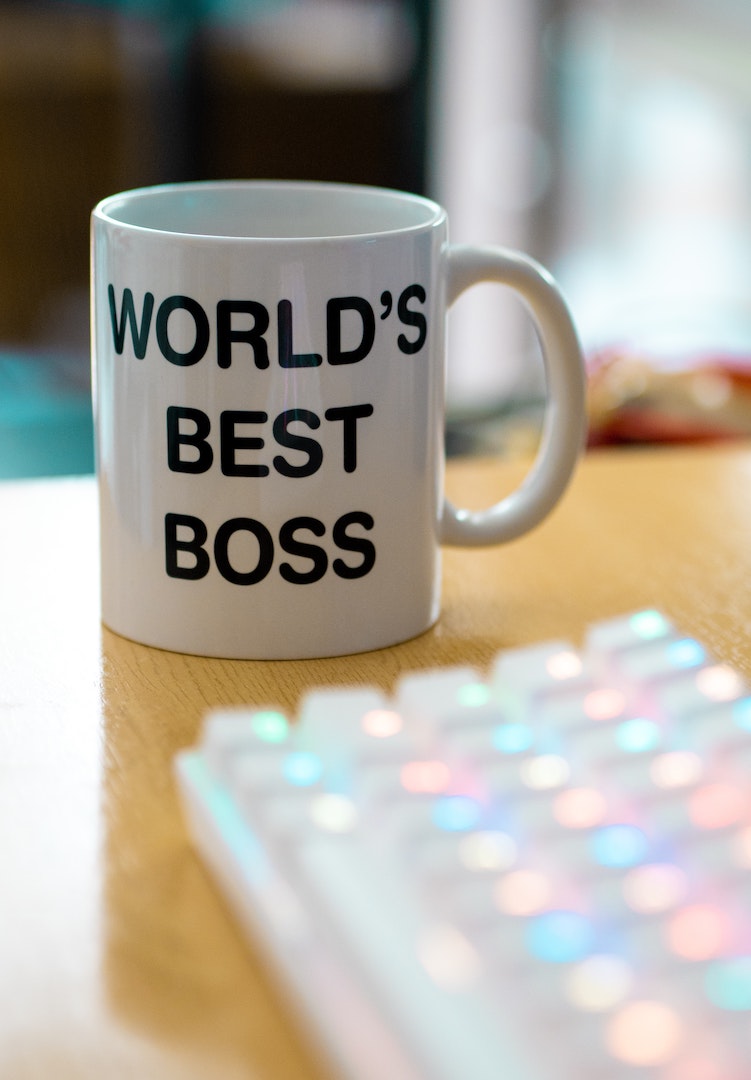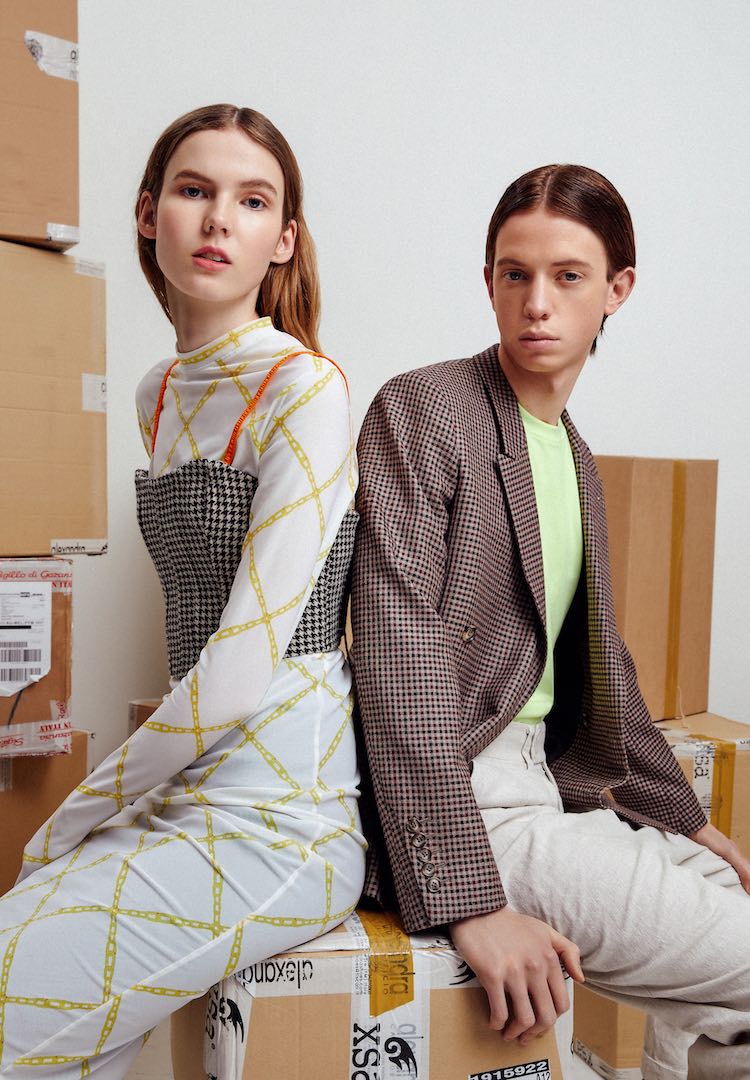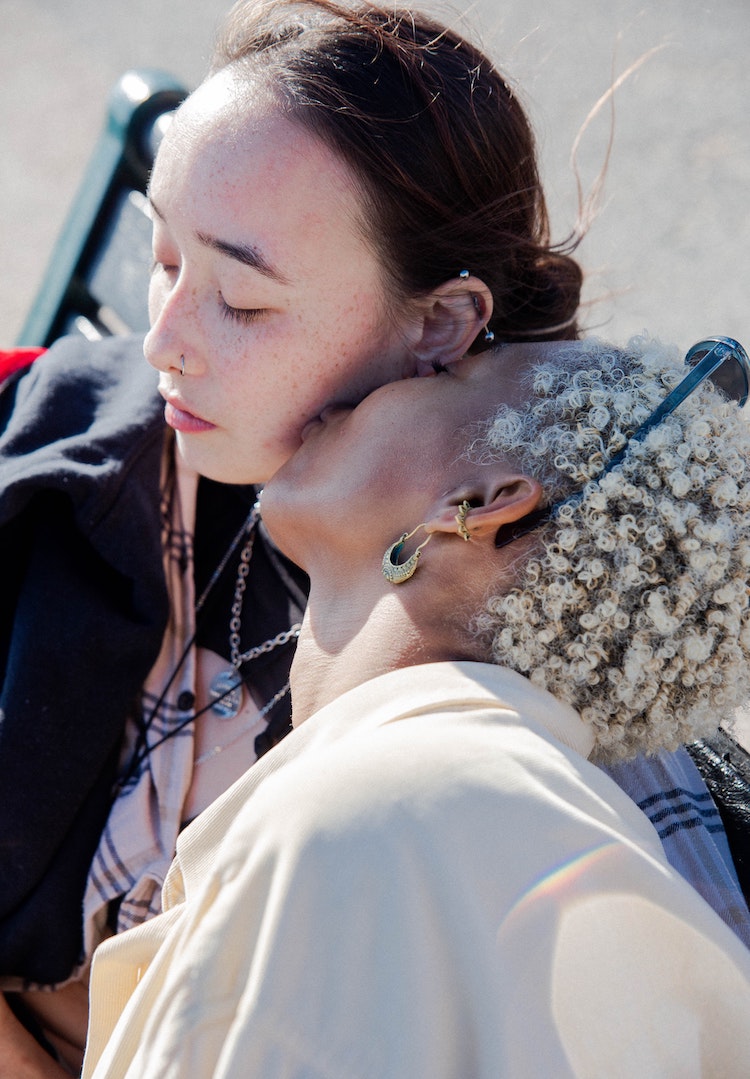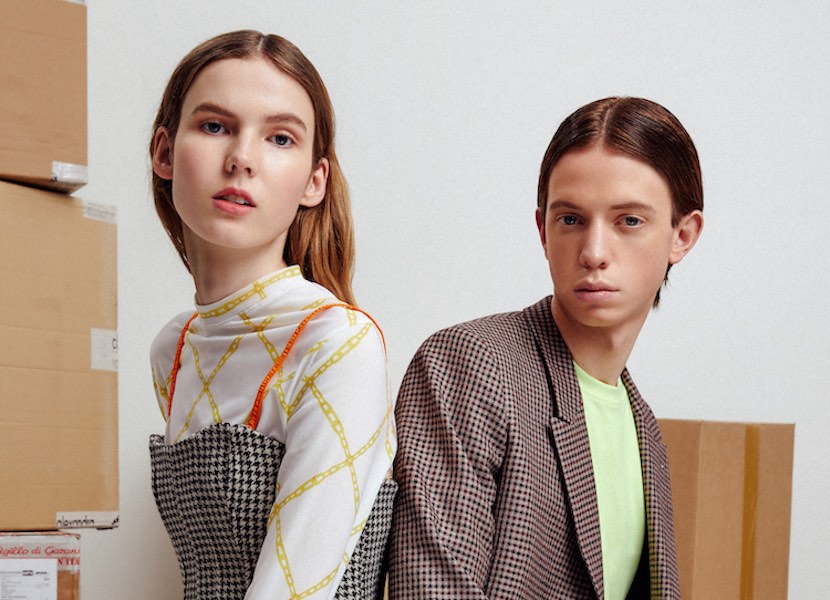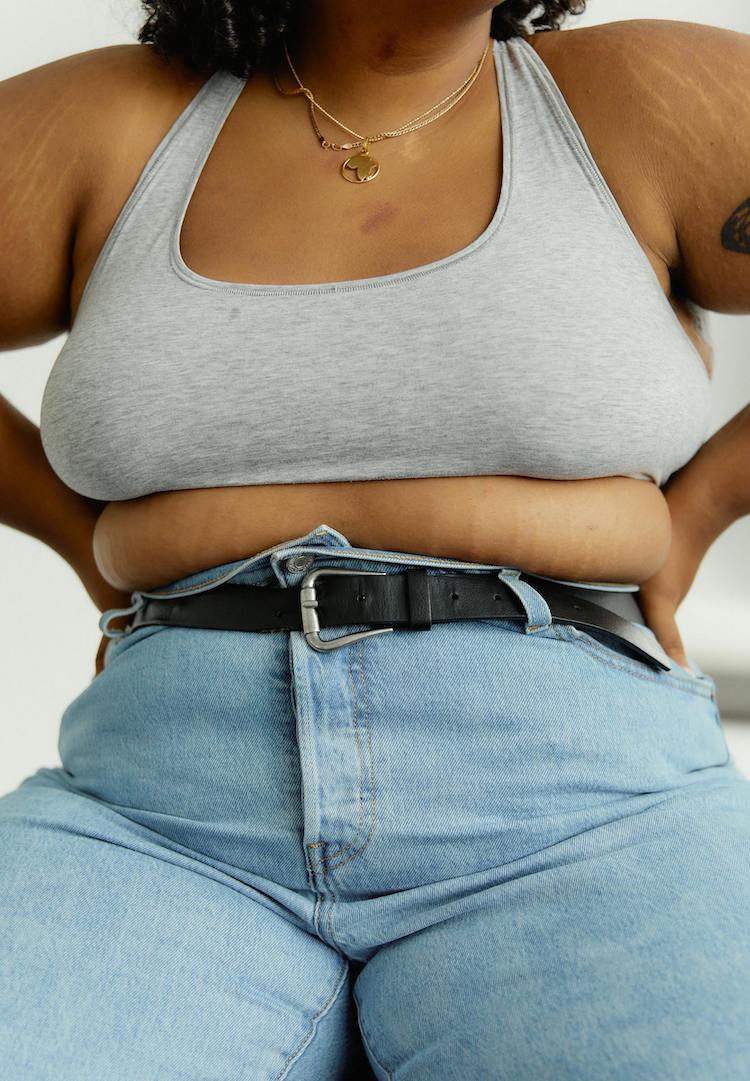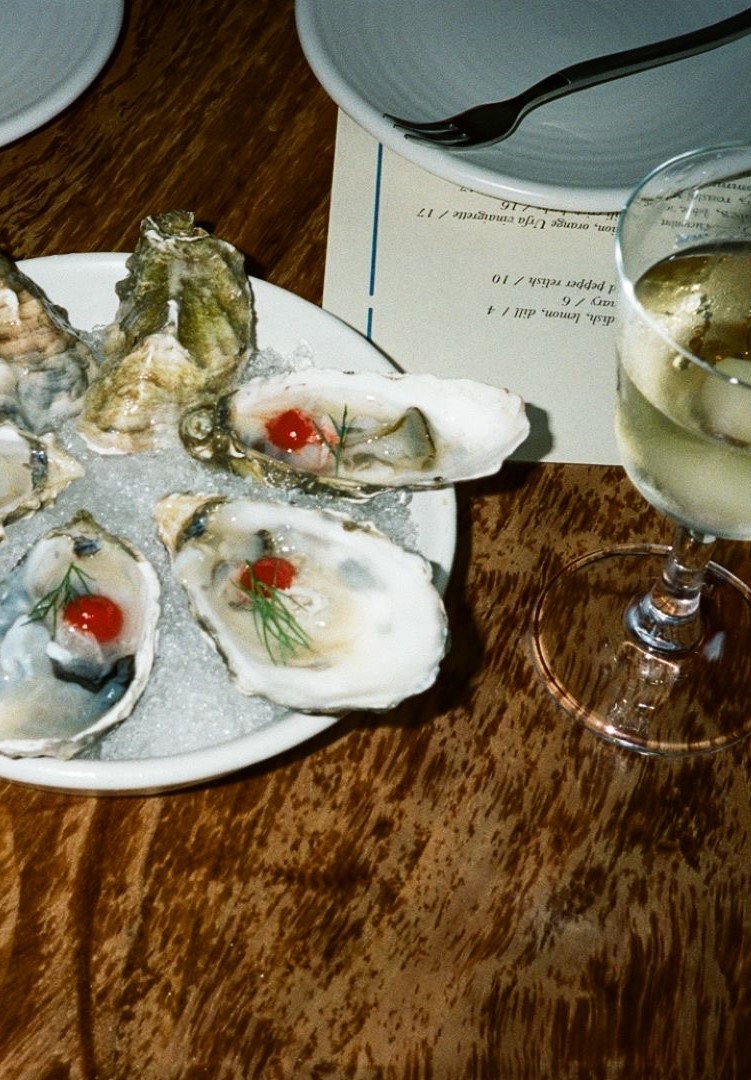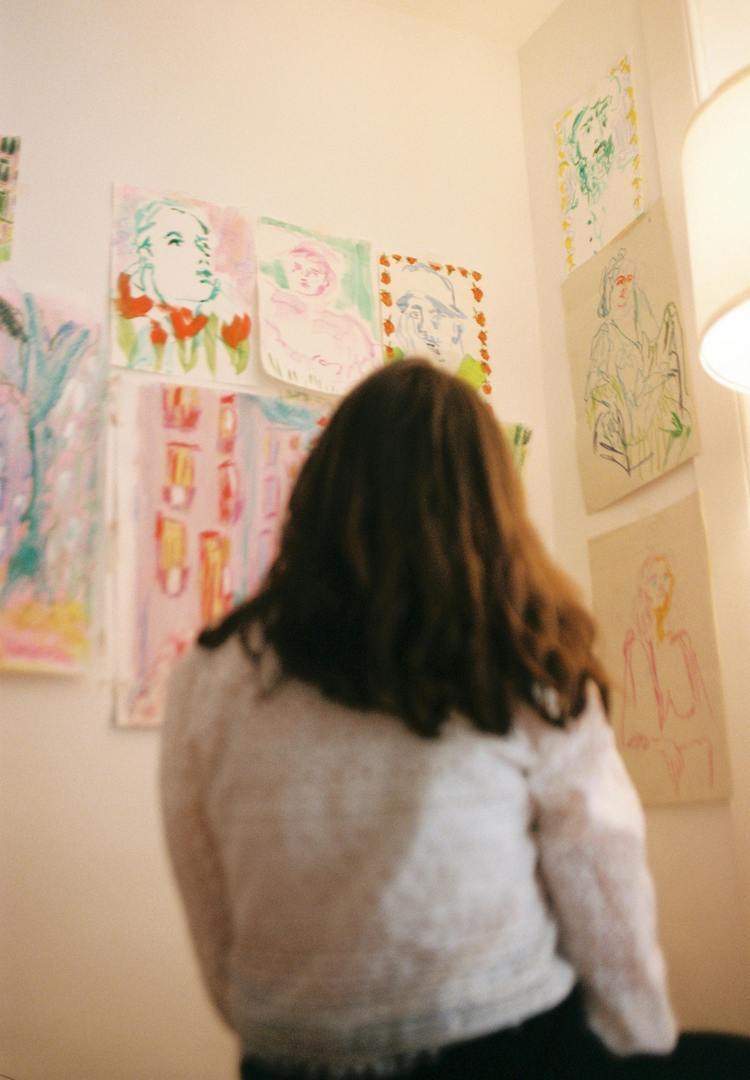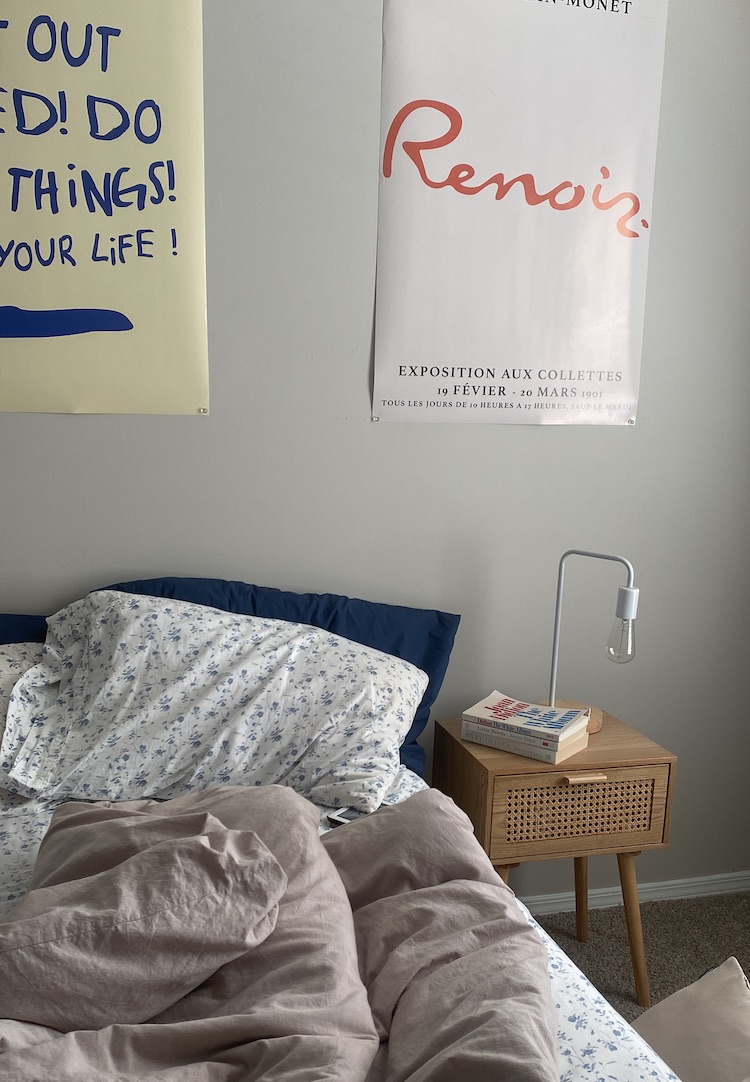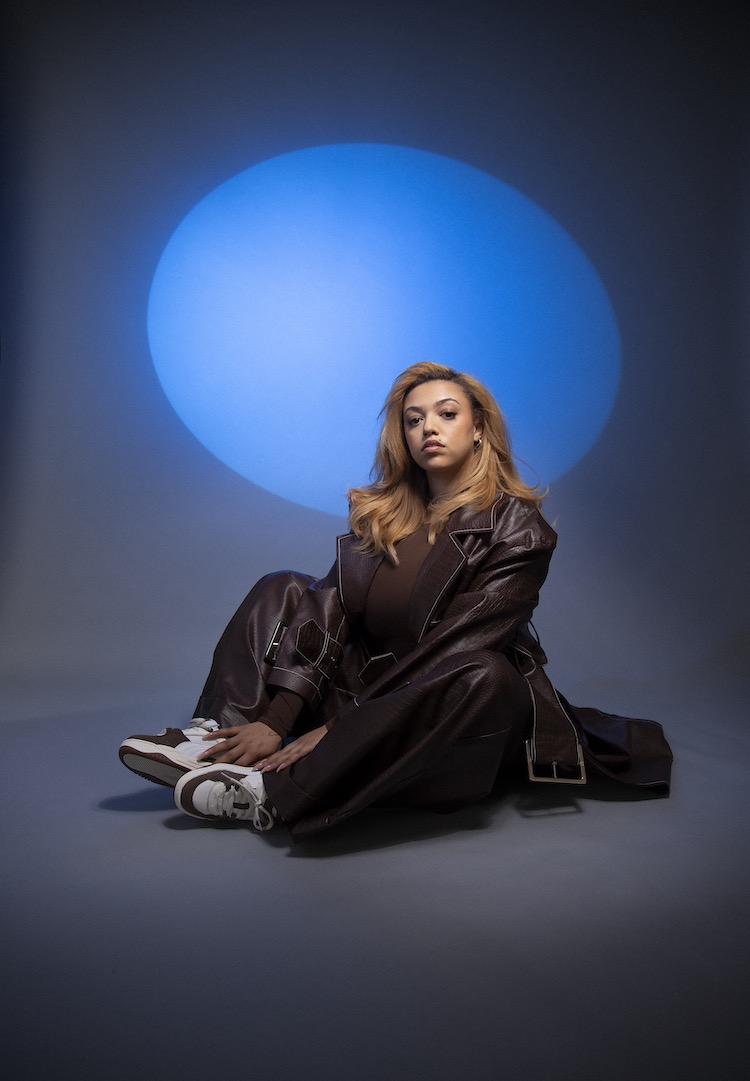Should you date outside your type? I asked those who did if they regret it
PHOTOGRAPHY BY JESPER HEDE
Words by Evangeline Polymeneas
Was it worth it?
One of the many reasons why me and my best friend Sara* work so well together is because we have totally different types. Sara loves tall, long curly-haired, blonde, country or surfer boys with blue or green eyes who work as tradies, whereas I’m a total sucker for dark and handsome white-collar professionals.
So you can imagine my surprise when Sara told me that she had fallen for a brunette, brown-eyed accountant. “His name is Brian* and he works in accounting,” she told me over the phone. Sara had moved to Sydney from our hometown in Adelaide in an attempt to find herself (she did and now she’s back). “Oh my god, okay,” I responded. “Send me a picture.”
Interested to hear how others navigate the world? Head to our Life section.
I put Sara on speaker and waited to receive the picture. When it finally came through, I was sure there was a mistake. Staring back at me was this gorgeous Indian man in a suit and tie – the complete antithesis to the usual blonde-haired blokes in hi-vis tradie uniforms I was accustomed to receiving from her. Was Sara coming for my gig? “I know,” she said. “But I really like him.”
Brian lasted until Sara came home to Adelaide (note to Brian: sorry it didn’t work out, I liked you). Since her return, Sara met her current boyfriend, Thomas*, a tall, long-haired blonde, blue-eyed, country boy who happens to work as, you guessed it, a tradie. But it got me thinking: did she regret Brian?
When dating, most of us are drawn to the same sort of people, or a ‘type’. This can be physical or it can refer to personality types. We have these types for one reason or another and they are different for everyone.
Perhaps Freud was onto something and really, we are all just searching for someone to fill a parent shaped hole inside of our hearts. Either way, most of us have a type and tend to stick to it, so what happens when you deviate from that type? Is it worth it?
To find out, I asked six people who dated outside of their type whether they regretted it and it only made sense to start from the source, so I called Sara.
Sara*
“No, I wouldn’t say I regret it,” Sara says. “I had fun with Brian.” I wanted to know, why Brian? After years of country and surfer boys, what made her shift?
“It’s a different vibe in Sydney,” she explains. “I was living in the city, and you don’t really get surfer boys with long curly blonde hair in the city, you get men who work as accountants, who are very switched on and I loved it.”
Adelaide, where Sara was originally from is a lot smaller geographically and subsequently, the dating app perimeters covered a wider range of people. “In Sydney that wasn’t happening,” Sara says, “I wasn’t venturing out of the city. I wasn’t mingling with country men, whereas in Adelaide, I was.”
Dating in Sydney presented a whole new world to Sara. She would apartment hop, go out for dinners at fancy restaurants and bars. This was very much the opposite of dating as she knew it in Adelaide, which consisted of showing up to your date’s family home and making awkward small talk with their mum.
While Brian and Sara didn’t work out, she doesn’t regret the experience, describing it as “fun and different”. While she might’ve reverted back to her type when she landed on the tarmac of Adelaide Airport, others I spoke to opted for a one-way ticket to ‘type less’.
Eva*
Eva’s culture and religion dictated who she thought her type was for years. It wasn’t until she met her current partner that everything changed for her.
“I’m an Eritrean Muslim, so dating is not really a thing unless you want to marry that person. For me, my type is someone that I would want as my husband,” Eva explains.
Eva described her original type as being from the same Eritrean culture, someone who is at least three years older than her, taller than her, can challenge her, is smarter than her, willing to grow with her, adventurous and super outgoing. “I’ve always wanted to have a power couple dynamic,” Eva says.
But above all, Eva wanted her husband to be Eritrean because that is what her family and community expected for her. Despite this specific type and cultural and community pressures, Eva tells me she’s never stuck to it. “Everyone that [I’ve dated] hasn’t been that.” Falling for anyone and everyone, Eva has always let her heart lead her and it led her to her current boyfriend.
Eva’s boyfriend isn’t Eritrean, he’s Sudanese and he is only a bit taller and only seven months her senior. He is shy and introverted and “definitely not a risk-taker”. Eva describes him as “the perfect balance” to her outgoing personality.
But her parents and family don’t actually know about him, despite their two-year-long relationship. “There is always going to be cultural racism, although we’re from the same religion, we’re from a different culture,” she explains.
By dating her boyfriend, Eva knows she will eventually be putting herself in a position where she will have to defend her choices. It’s a fight she says she is willing to partake in. “Even though I take the risk of my parents or other people in the community not being accepting [of our relationship] because it’s common for Eritreans to marry Eritreans, I embrace the fight for acceptance.
“There is no way that I’m going to limit myself to my type or my culture. I definitely want to marry someone within my religion, but in terms of other people imposing things on me – I’m definitely not going to be restricted to that and if I was, I never would’ve found [my boyfriend].
“If people aren’t accepting of [us] or if they’re judgemental, I couldn’t care less. Why should I not have a great chance at love, because of what someone else thinks? It’s definitely not easy, but the risk is definitely worthwhile.”
Lisa*
Lisa has always been a sucker for tall, dark and handsome Europeans (and if I do say so myself, it’s hard not to be). This type isn’t a surprise if you’ve met Lisa’s boyfriend or any of her exes, but in the line-up of her love life, there is one particular stand out – a pasty, blonde, British boy, which Lisa maintains she is allowed to say that because she is part British.
“I like dark hair and lots of it, semi-tanned skin but I’m not too phased by that, someone who is a bit taller than (yes I’m one of those girls) and anyone with a happy face,” Lisa explains.
But while on an overseas exchange, Lisa let her inhibitions out the window on the plane ride over and fell for a boy in her friendship group. “What made me go for him wasn’t what he physically looked like, it was more that I was attracted to his personality.
“We had a really good friendship and that’s how I was drawn to him. Being in Adelaide, my hometown, you do play it a bit safe, and when I was [on exchange], I became a bit of a different person,” she tells me.
In the end, Lisa and the pasty British boy did not work out. “I obviously had to come home which was a big issue and I just felt like after a while we just didn’t have as much of a physical attraction as I had experienced with people who were my type.
“What I learnt from that is that I should probably stay in my lane and do what’s worked. A year later, I met my current boyfriend. We’ve been together for two years and he is the epitome of my type,” she says.
When I asked Lisa if she regretted it, it was hard for her to give a straight answer. It wasn’t as if she regretted the experience, but she was adamant she would never do it again. “I don’t think there is anything wrong with [straying from your type] but as you would with anything when it comes to dating, tread with caution and do what’s best for you.”
Zara*
Zara never dated in high school. “I’m Sri Lankan and my family has very traditional and strict values. It wasn’t until second-year uni when I experienced the whole dating/situationship saga,” she tells me.
When I asked Zara what her type was, she described her best friend of five years, Simon*. Simon is White, blonde, blue-eyed and tall and lanky. “He is the total opposite of what my family back home wanted for me,” she says.
Zara and Simon began what can only be referred to as a situationship. Although they didn’t work out, being with Simon taught Zara a lot about what she actually wants out of her relationships, and also shed light on why she was attracted to him in the first place.
“The reason [Simon] was my type for so long was because it was my own way of ‘rebelling’ against my culture,” she explains. “I was doing something very different to what my family was used to. I think, eventually, the older I got the more I reconnected with my Sri Lankan culture and realised that I actually wanted someone who had a similar cultural experience to me.”
Zara explains that she dated White men in an attempt to push away her culture, when really she wanted to embrace it. I asked her if she regretted Simon and wondered if she would take the experience back if she could. “I don’t regret it,” she responds. “It really pushed me to figure out what I really wanted in someone.
“I think everyone should date someone who isn’t really their type, even in a non-physical way. It’s important to step outside your comfort zone, so you can experience different people who can challenge you. You get a better understanding of who you are as a person and what beliefs you stand for.”
Aylia*
Aylia’s pansexuality was realised when they broke their masculine type for “someone who was perhaps more feminine in their self-expression”.
“Regardless of gender, I would always look for someone that harboured typically more masculine attributes and appearances to me,” Aylia says. But this changed when they fell for someone who presented in a more feminine manner. When this happened Aylia realised that they were restricting themselves.
“I identify as pansexual but within that, although there is nothing wrong with having preferences, I felt that by pinpointing that I had a ‘type’, I was straying away from my pansexuality. Pointing out and confronting the deep-rooted conflict of gender-expression helped me recognise that my ‘type’ was a result of my own gender conformity.”
Aylia definitely doesn’t regret straying from their type. “It’s allowed me to become more tuned [in] with my pansexuality and realise that my gender expression has nothing to do with my sexuality, and in accepting that, I’ve been able to accept others’ expressions too and not translate that into deciphering their sexuality.
“Plus, I feel a lot more self-aware knowing that when I’m attracted to people for a certain way they look or express themselves, it’s because of learnt behaviour that is more acceptable to a greater society, not a result of personal choice,” they say.
I ask Aylia if she has any advice for others navigating this journey. “Try looking at things from a different perspective and remember that it’s not that deep,” she says.
Olivia*
Olivia’s a sucker for anyone with similarities to Hugh Grant – “tall, lanky men who probably have floppy black hair, wear glasses and read pretentious books. Nine times out of 10 they also study law or political science,” she says.
But Olivia took a turn and boy was she not in Notting Hill anymore. “[Walter*] was a strawberry blonde and more of a classic ‘blokey’ type but still sensitive,” Oliva explains. “He wasn’t into reading or politics or anything remotely pretentious like everyone else I seemed to date.”
Olivia attributes the length of their relationship not only to the fact that he was so unlike the rest of her past suitors, but also because they were friends first. “That’s probably why I strayed. He was the first person I ever loved and [although we didn’t work out] we’re still friends to this day, years after. I often reflect on this relationship and wonder if it worked so well because he wasn’t my usual type.
“I do often wonder though if we had more shared interest or wanted the same things, like my usual type normally does, if we would’ve stayed together for a longer amount of time,” she says.
Despite Walter not working out, Olivia isn’t put off from dating men outside her usual type. “Often the people who are the most ‘your type’ are the ones that never end up working out – and it’s probably because you’ve somewhat placed them on a pedestal as your idea of ‘it’ or ‘perfect’, and they don’t live up to that.
“Take it from a girl who has dated three boys with the same name in a row, who were eerily similar,” Olivia says. “Not one of them worked out – maybe these people are your type and you’re theirs, but that doesn’t mean that you’re actually going to work in the long run.
“If you’re attracted to someone that strays from your type, they’re obviously special in some way. If I can’t stop thinking about a guy and he doesn’t have ’90s Hugh Grant hair, then I’ve got to give it a go.”
After talking with everyone it’s safe to say that straying from your type might end up being one of the better decisions of your life. After all, it’s always better to have tried and failed than to have never tried at all.
*Names have been changed
For more on the unexpected benefits of dating outside your type, try this.

